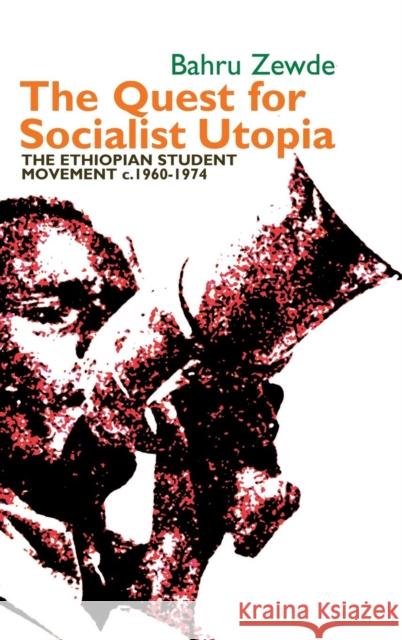The Quest for Socialist Utopia: The Ethiopian Student Movement, C. 1960-1974 » książka
The Quest for Socialist Utopia: The Ethiopian Student Movement, C. 1960-1974
ISBN-13: 9781847010858 / Angielski / Twarda / 2014 / 317 str.
In the second half of the 1960s and the early 1970s, the Ethiopian student movement emerged from rather innocuous beginnings to become the major opposition force against the imperial regime in Ethiopia, contributing perhaps more than any other factor to the eruption of the 1974 revolution, a revolution that brought about not only the end of the long reign of Emperor Haile Sellassie, but also a dynasty of exceptional longevity. The student movement would be of fundamental importance in the shaping of the future Ethiopia, instrumental in both its political and social development. Bahru Zewde, himself one of the students involved in the uprising, draws on interviews with former student leaders and activists, as well as documentary sources, to describe the steady radicalisation of the movement, characterised particularly after 1965 by annual demonstrations against the regime and culminating in the ascendancy of Marxism-Leninism by the early 1970s. Almost in tandem with the global student movement, the year 1969 marked the climax of student opposition to the imperial regime, both at home and abroad. It was also in that year that students broached what came to be famously known as the -national question-, ultimately resulting in the adoption in 1971of the Leninist/Stalinist principle of self-determination up to and including secession. On the eve of the revolution, the student movement abroad split into two rival factions; a split that was ultimately to lead to the liquidation of both and the consolidation of military dictatorship as well as the emergence of the ethno-nationalist agenda as the only viable alternative to the military regime. Bahru Zewde is Emeritus Professor of History at Addis Ababa University and Vice President of the Ethiopian Academy of Sciences. He has authored many books and articles, notably A History of Modern Ethiopia, 1855-1974 and Pioneers of Change in Ethiopia: The Reformist Intellectuals of the Early Twentieth Century. Finalist for the Bethwell A. Ogot Book Prize to the author of the best book on East African Studies, 2015. Ethiopia: Addis Ababa University Press (paperback)











